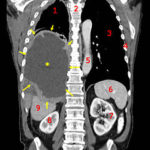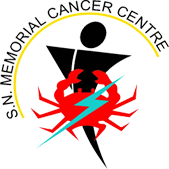Oncologists
Oncology is the study of cancer. An oncologist is a doctor who treats cancer. Usually, an oncologist manages a person’s care and treatment once he or she is diagnosed with cancer.
The field of oncology has three major areas: medical, surgical, and radiation.
- A medical oncologist treats cancer using chemotherapy or other medications, such as targeted therapy.
- A surgical oncologist removes the tumor and nearby tissue during an operation. He or she also performs certain types of biopsies.
- A radiation oncologist treats cancer using radiation therapy.
Other types of oncologists include the following:
- A gynecologic oncologist treats gynecologic cancers, such as uterine cancer and cervical cancer.
- A pediatric oncologist treats cancer in children. Some types of cancer occur most often in children and teenagers, such as certain brain tumors, leukemia, osteosarcoma, and Ewing’s sarcoma. But they sometimes occur in adults. In these cases, an adult may decide to work with a pediatric oncologist.
- A hematologist-oncologist diagnoses and treats blood cancers, such as leukemia, lymphoma, and myeloma.
The role of the
An oncologist oversees a patient’s care from the cancer diagnosis throughout the course of the disease. The oncologist’s role includes the following:
- Explaining the cancer diagnosis and stage to the patient
- Discussing all relevant treatment options and the oncologist’s recommendations
- Delivering high-quality, compassionate care
- Helping the patient manage cancer-related pain and other symptoms or treatment side effects
A person with cancer is often treated by a team of oncologists who specialize in different areas of oncology. This approach is helpful because cancer treatment frequently involves a combination of surgery, chemotherapy, and radiation therapy.
Other medical professionals may also be involved in a patient’s care:
- A pathologist specializes in reading laboratory tests and checking cells, tissues, and organs to diagnose disease
- A diagnostic radiologist specializes in performing and reading imaging tests, such as x-rays or ultrasound tests, to diagnose disease
- An oncology nurse
- An oncology social worker
The team may also include doctors from other areas of medicine. For example, a dermatologist specializes in skin problems and may help treat skin cancer. If a person’s cancer diagnosis is complex, the patient’s oncologist may ask a tumor board to review the case. A tumor board consists of medical experts from all relevant areas who help decide the best course of treatment.
 Female Cancer Specialist Doctor in Kanpur female, doctor, cancer, specialist, female, oncologist, oncology, medical, oncologist, chemotherapy, breast, blood, mammography, prostate, center, hospital, radiotherapy, surgery, mouth, kanpur, sn, memorial, female, doctor, cancer, specialist,
Female Cancer Specialist Doctor in Kanpur female, doctor, cancer, specialist, female, oncologist, oncology, medical, oncologist, chemotherapy, breast, blood, mammography, prostate, center, hospital, radiotherapy, surgery, mouth, kanpur, sn, memorial, female, doctor, cancer, specialist,
